On a recent trip to Virginia, I stayed with my dear friend Jenny, her husband Daniel and their two very smart teenage sons. Jenny and Daniel are fellow Europhiles - they love Italy and I love France.
When we started talking about Paris, I mentioned the delightful music of Django Reinhardt, which they weren’t familiar with. So Jenny fired up the Alexa and out of the cylindrical speaker came the enchanting sounds of Django Reinhardt and his guitar.
It sounded something like this:
Gypsy jazz is synonymous with Django Reinhardt. To me, it’s second only to the sound of an accordion when it comes to quintessential Parisian music.
Gypsy jazz, also known as gypsy swing, jazz manouche or hot club-style jazz, is a musical idiom inspired by the Romani jazz guitarist Jean "Django" Reinhardt.
His was an unusual story. He was born in 1910 in Belgium to a French Roma gypsy family that lived on a cart with wheels, in keeping with their nomadic tradition. He ended up learning to play the guitar-banjo from an early age and would go on to play in the rough dancehalls of Paris.
In 1928, when he was 18 years old, a fire broke out in the caravan he lived in. His left hand was badly burned, and he lost use of two fingers.
Was that a deal-breaker for his music career? Au contraire.
Even though his doctor suggested he find a different profession, young Django re-trained himself to play using a new technique. He ended up adopting a way of playing notes very quickly, sometimes in an almost staccato format, which became one of his signatures.
Keep in mind that by the 1930s, jazz was really an American style of music. Specifically swing jazz, which was better to dance to, as Americans sought some form of enjoyment amid the Great Depression.
Meanwhile, across the Atlantic, Django Reinhardt was blowing up the jazz scene in Paris. Word spread about him over in the U.S., and he became known as one of the first great European jazz musicians. By then, the jazz scene had fully arrived in Paris; the clubs were packed night after night.
“It's the Paris of Henry Miller, of the legendary restaurant and club La Coupole, in Montparnasse… It's the Paris of Ernest Hemingway. It's Paris before the war.”
-Boulou Ferre, son of a guitarist who played with Reinhardt (from NPR)
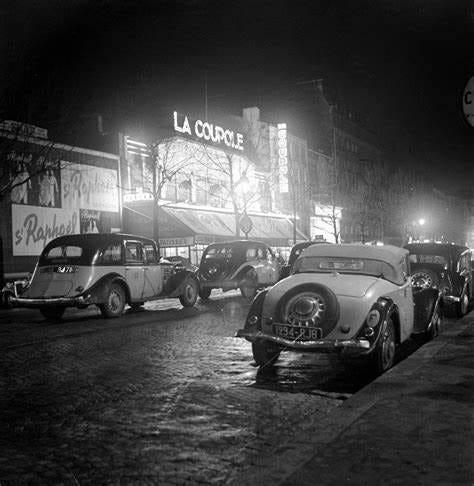
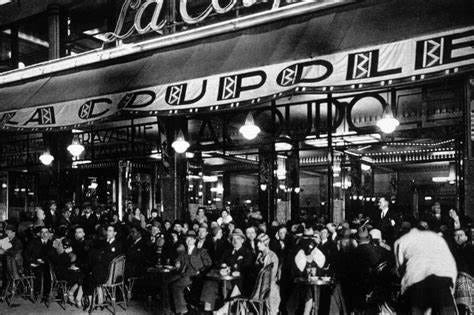
In the 1930s, Django Reinhardt formed a group with a violinist named Stephane Grappelli to create the Quintet of the Hot Club in France. The group became wildly popular. Three of their records were even produced in the U.S. in 1935 so American audiences could enjoy their music.
Unfortunately, the good times yielded to the spread of the Nazi threat across Europe. Among those persecuted were the Roma people, and let’s not forget that Django himself was part of that community. Luckily for him, his jazz kept him alive to entertain the Nazis in Paris.
As an homage to occupied France during the World War II, Django Reinhardt wrote a song called “Nuages” (‘clouds’ in English).
Listen here:
In the 1940s, Django went to the U.S. to play on tour with Duke Ellington, but eventually he made his way back to France. In 1951, he ended up moving outside of Paris. A few years later, he died of a stroke at the young (!!) age of 43.
If you subscribe to Amazon and have an annoying but useful Alexa, say the words, “Alexa, play Django Reinhardt,” and you won’t be disappointed. His music is great to listen to while reading, cooking, gardening — or simply fantasizing about living to Paris.
Links to more of Django Reinhardt’s music here.
Sources:


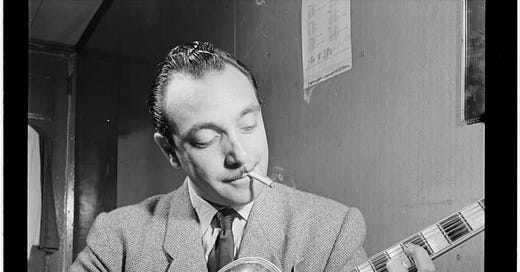



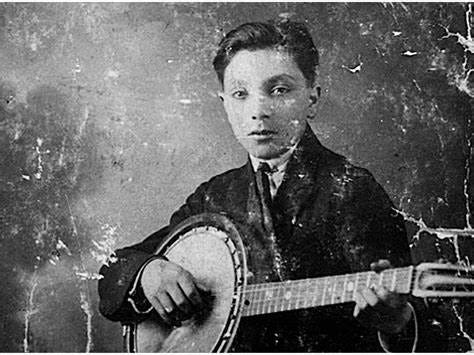
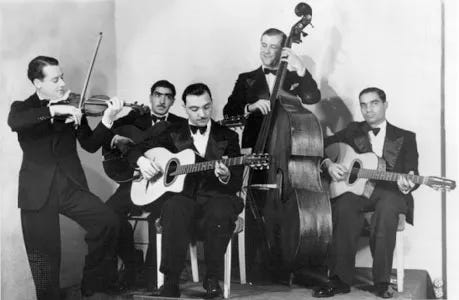
I have a couple of his cds inc with Stephane Grappelli. I'm off to play them via my laptop - no Alexa in my house. One woman is enough:))
Thank you, Jenn, for introducing us to the wonderful work of Django Reinhardt and Paris jazz!